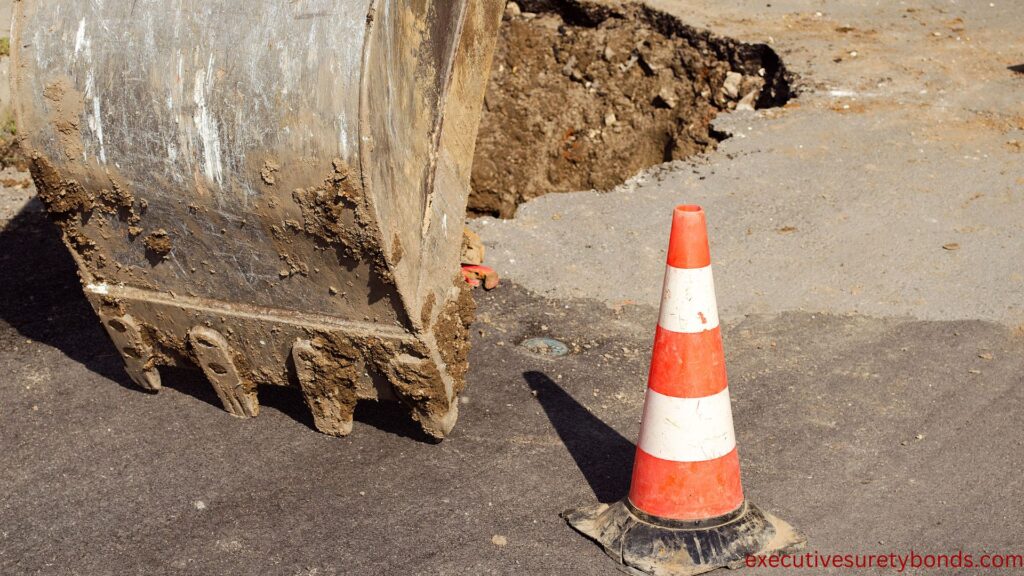Introduction
The City of Olympia, nestled in the heart of Washington State, is a community that thrives on progress and development. Ensuring that construction and excavation activities on public streets proceed with precision, accountability, and minimal disruption is of paramount importance. To achieve this, the city requires a Street Excavation and Obstruction Bond. In this comprehensive article, we will explore the significance of this bond, its purpose, requirements, and how it contributes to Olympia’s journey toward a better future. Join us as we delve into the world of Street Excavation and Obstruction Bonds in Olympia.
Understanding the Street Excavation and Obstruction Bond
The Street Excavation and Obstruction Bond is a financial assurance demanded by the City of Olympia from developers, contractors, and entities intending to perform construction, excavation, or obstruction work on public streets within the city. These streets include roadways, sidewalks, and other public spaces where construction or maintenance activities are planned.
The primary purpose of the Street Excavation and Obstruction Bond is to protect the interests of the city and its residents by ensuring that the permitted work adheres to the city’s regulations, standards, and specifications. This bond acts as a safeguard, offering financial assurance and accountability while mitigating potential risks associated with excavation and obstruction activities.
Key Components of a Street Excavation and Obstruction Bond
- Bond Amount: The bond amount varies and is determined by the city based on factors such as the nature of the work, potential impact on the street, and estimated project costs. It serves as a financial cushion to cover any costs or damages that may arise due to non-compliance, unexpected issues, or damages during the project.
- Duration: The bond’s duration is aligned with the project’s timeline. It remains in effect until the city is satisfied that the work has been completed in accordance with approved plans and meets all required standards.
- Surety Company: Developers and contractors must secure a Street Excavation and Obstruction Bond from a reputable surety company licensed to operate in Washington State. The surety company functions as a financial guarantor, assuring the city that it will cover any financial losses incurred due to non-compliance or damages.
- Bond Release: Upon successful completion of the excavation or obstruction work and obtaining all necessary approvals and inspections, the city may release the bond. This process ensures that the city remains protected throughout the project and that any deficiencies are addressed before bond release.
Benefits of Street Excavation and Obstruction Bonds
- Quality Assurance: Street Excavation and Obstruction Bonds encourage developers and contractors to uphold high-quality construction practices and comply with the city’s regulations. This results in safer, longer-lasting, and more reliable infrastructure.
- Financial Protection: The bond provides financial protection to the city and its residents, ensuring that taxpayers are not burdened with the cost of correcting substandard work. In case of non-compliance, the city can utilize bond funds to rectify any deficiencies.
- Accountability: By requiring a bond, the city holds developers and contractors accountable for their work. The bond acts as a deterrent against shortcuts, negligence, or non-compliance, as the financial consequences of default can be substantial.
Conclusion
The Street Excavation and Obstruction Bond is an essential tool in the City of Olympia’s commitment to responsible growth and development. It ensures that construction and excavation activities on public streets align with the highest standards of quality, safety, and compliance, promoting the well-being of residents and the city’s continued progress. As Olympia continues to evolve, the Street Excavation and Obstruction Bond plays a pivotal role in preserving the city’s character and enhancing its infrastructure for generations to come. Safe and compliant streets are fundamental to a thriving community, and Olympia recognizes their importance.
Frequently Asked Questions
Can the Street Excavation and Obstruction Bond be used to cover the cost of temporary community events or street fairs that require street closures and temporary obstructions?
While the primary purpose of the Street Excavation and Obstruction Bond is to ensure compliance with construction regulations, the City of Olympia recognizes the value of community events and street fairs. In some cases, the city may consider allowing a portion of the bond amount to be used for covering the cost of temporary community events that involve street closures and obstructions. However, this is subject to approval by the city and must align with specific guidelines for such events. Organizers interested in utilizing the bond for temporary events should engage with the city’s event permitting department to explore possibilities and requirements.
Are there any incentives or considerations for projects that incorporate historically accurate or culturally significant street designs and materials when posting a Street Excavation and Obstruction Bond?
Olympia places importance on preserving its historical and cultural heritage. Developers and contractors interested in incorporating historically accurate or culturally significant street designs and materials can engage in discussions with the city’s planning and permitting department. In some cases, the city may consider alternative bonding arrangements or risk assessment mechanisms to accommodate such approaches, provided they meet safety and quality standards and align with the city’s heritage preservation goals.
Can the Street Excavation and Obstruction Bond be transferred to a new party if there is a change in ownership or responsibility for the construction or excavation project?
Yes, the City of Olympia does allow for the transfer of the Street Excavation and Obstruction Bond to a new party if there is a change in ownership or responsibility for the construction or excavation project. However, this transfer is subject to specific conditions and approval by the city. The new party assuming the bond must demonstrate the capacity to fulfill all bond requirements and meet the city’s standards for the project. Developers or contractors interested in such transfers should engage in early discussions with the city to understand the process and requirements involved in such transitions.

